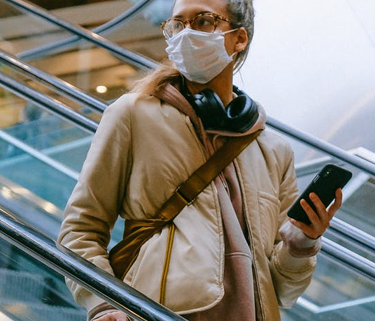The Arc Responds to New CDC Mask Guidance
Washington, DC – The Arc is disappointed by the decision by the Centers for Disease Control and Prevention (CDC) on Friday to revise masking guidelines for the United States. The new set of criteria deprioritizes the importance of case counts, resulting in approximately 70% of United States counties shifting status overnight. This does not mean that those counties do not still have high case counts or that people in those communities who are immunocompromised and at higher risk of contracting and being harmed by COVID-19 should not still protect themselves. The CDC acknowledges as much in their new guidance, detailing different rules for people who are immunocompromised.
“People with intellectual and developmental disabilities are at extremely high risk of contracting and dying from COVID-19 – having an intellectual disability was the strongest independent risk factor for presenting with the diagnosis and the strongest independent risk factor other than age for COVID-19 mortality,” said Peter Berns, The Arc’s CEO. Even though recent variants have been milder in some circumstances, there is no indication that they are still not a serious risk for people with IDD.
“Since the beginning of the pandemic, we have had to push back on the idea that people with IDD are second class citizens who should be deprioritized when rationing care or that the providers who serve them are not essential workers. This change to the masking guidance specifically lays out a completely separate set of rules for people with disabilities, recognizing that they are still at risk, but not asking the general public to continue to take protective measures to help reduce their risks. Access to high quality masks; accessible, affordable and available testing; monoclonal antibodies; and other mitigation options are still – two years into this crisis – not widely available and accessible to people with disabilities. Placing the burden of protecting themselves solely on the high risk individuals without these basic tools in place is unacceptable—even more so with case counts still high and non-universal access to vaccines.
“Masking indoors not only protects the individual wearing the mask, but everyone around them by reducing transmission of the virus. For people who are high risk, the amount of virus in their community is an incredibly important data point. This is especially the case for individuals with disabilities who might not be able to mask themselves and so rely on others. And it also crucial for children with complex medical needs under 5 who cannot be vaccinated right now and for children with disabilities in school who are at high risk.
“Like everyone else, people with disabilities and their loved ones are very tired of the pandemic and want to go back to something like normal. But we are still waiting for vaccines to be universally available and for case counts to drop to protect immunocompromised people. 2,797 people died of the virus on Friday when the guidance was announced and we have almost reached one million deaths, including a disproportionate number of people with IDD. We must ensure that our public health policies focus on and reflect the needs of people with disabilities, not simply tell them to fend for themselves or stay home.
“As this abrupt policy change disregards the needs of people with disabilities begins to be implemented, we ask everyone to think about others in their neighborhoods, in their communities, in that moment when questioning whether it is necessary to put on a mask. Many people will benefit from widespread masking, until things improve for everyone.”
The Arc advocates for and serves people with intellectual and developmental disabilities (IDD), including Down syndrome, autism, Fetal Alcohol Spectrum Disorders, cerebral palsy and other diagnoses. The Arc has a network of nearly 600 chapters across the country promoting and protecting the human rights of people with IDD and actively supporting their full inclusion and participation in the community throughout their lifetimes and without regard to diagnosis.
Editor’s Note: The Arc is not an acronym; always refer to us as The Arc, not The ARC and never ARC. The Arc should be considered as a title or a phrase.








